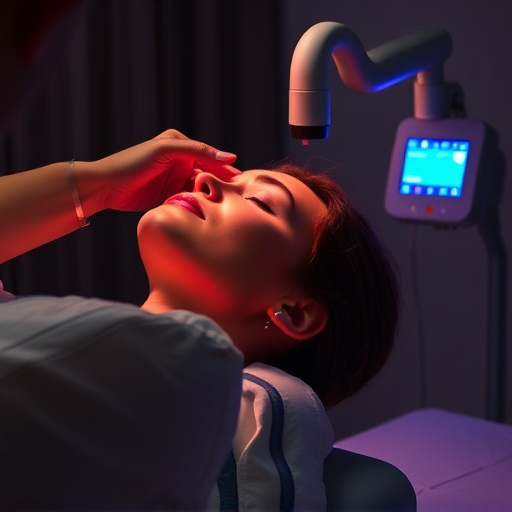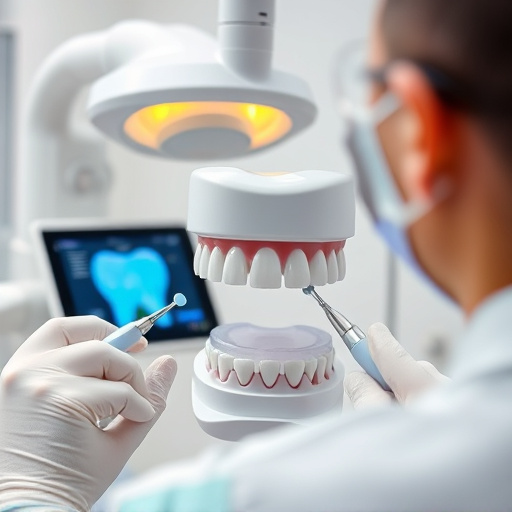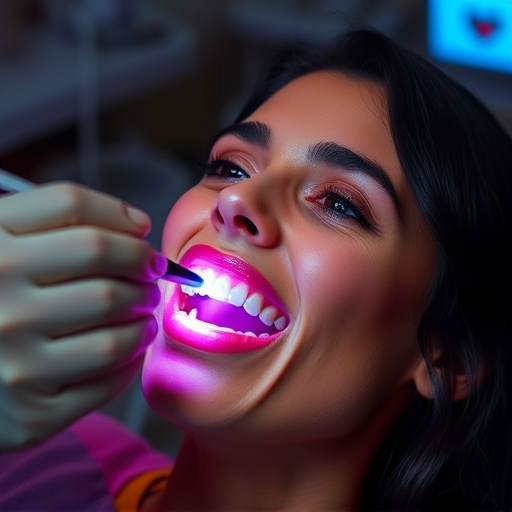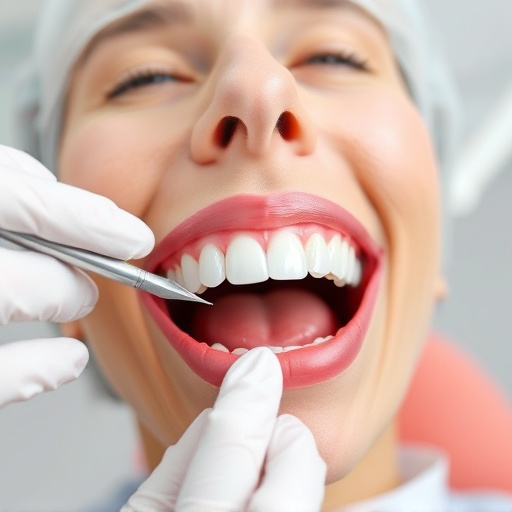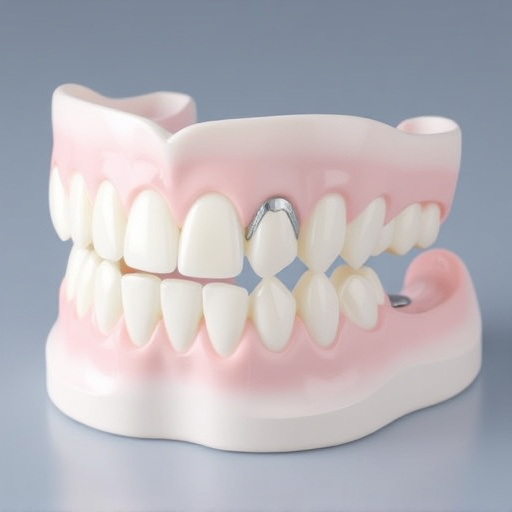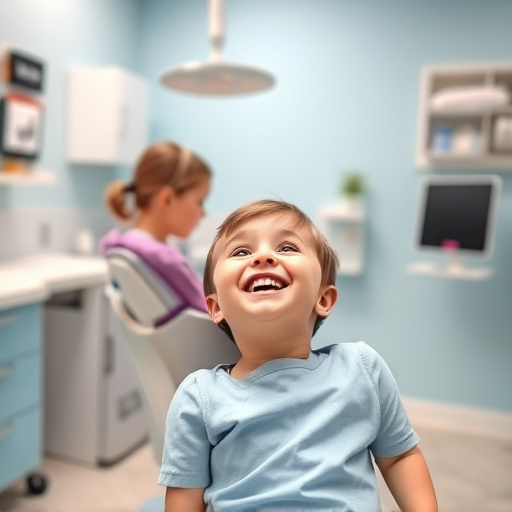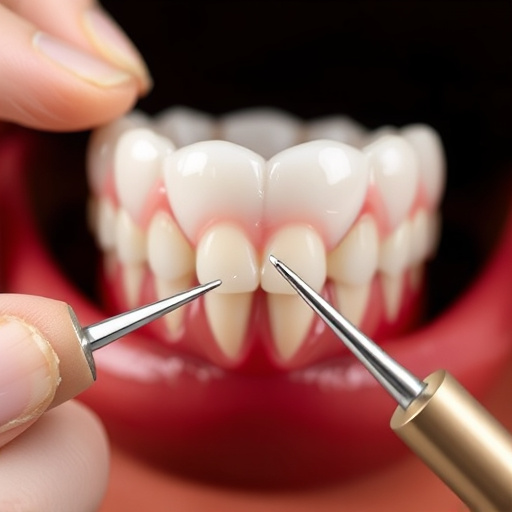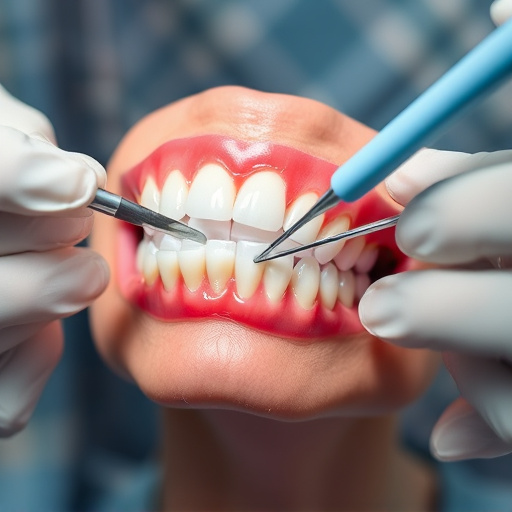Regular oral health assessments by dentists are crucial for early cancer detection. These thorough exams include visual and tactile checks of all mouth areas, identifying red or white patches, throat issues, and other potential symptoms. Early identification through this proactive method allows for timely treatment, from cosmetic fixes to emergency care, preventing difficult late-stage cancer management.
Oral health assessment plays a pivotal role in early cancer detection, often revealing hidden signs of oral cancer. This article delves into the crucial aspect of uncovering subtle symptoms and the importance of comprehensive dental exams. We explore how regular oral health assessments can prevent progression by identifying pre-cancerous lesions. Learn about the steps healthcare professionals take to ensure optimal oral health, focusing on early detection strategies for a successful battle against this disease.
- Uncovering Hidden Signs: Oral Cancer Symptoms
- The Role of Comprehensive Dental Exams
- Early Detection: Preventing Oral Cancer Progression
Uncovering Hidden Signs: Oral Cancer Symptoms

Hidden symptoms can often be the first signs of oral cancer, which is why a thorough oral health assessment is crucial. During this process, dentists and dental hygienists meticulously examine your mouth, paying close attention to any unusual changes. They look for signs like red or white patches on the gums, tongue, or lips, which could indicate precancerous lesions. Additionally, they check for sore throat, persistent hoarseness, or difficulty swallowing, as these symptoms may suggest a more advanced stage of oral cancer.
An oral health assessment goes beyond routine checks; it involves exploring areas that might be overlooked. This includes checking the mouth’s floor, inside cheeks, and even the wisdom tooth area, where impacted or partially erupted teeth can create favorable conditions for cellular changes leading to cancer. Early detection through regular assessments is key in ensuring prompt treatment, which often includes options like cosmetic fillings or, in more severe cases, emergency dental care and wisdom tooth removal.
The Role of Comprehensive Dental Exams

Comprehensive dental exams play a pivotal role in oral health assessment, acting as an early detection system for oral cancer. These detailed examinations go beyond a regular check-up, involving meticulous scrutiny of every aspect of your mouth—from teeth and gums to the tongue, cheeks, and even the jaw. Dentists use specialized tools and their keen expertise to identify subtle signs that might indicate the presence of cancerous cells.
By integrating advanced diagnostic techniques, such as visual inspection, tactile examination, and the use of technology like oral cameras, dental professionals can uncover potential issues early on. This proactive approach is especially crucial given that oral cancer, if detected late, can be challenging to treat. Regular comprehensive dental exams not only contribute to successful treatment outcomes but also offer peace of mind by ensuring any changes in your oral health are identified and addressed promptly, including conditions that might require procedures like dental implants or the restoration of dental crowns in children’s dentistry.
Early Detection: Preventing Oral Cancer Progression

Early detection is a cornerstone of cancer treatment, including oral cancer. Regular oral health assessments play a pivotal role in this process by enabling dental professionals to identify subtle signs and symptoms that may indicate the presence of malignant growths. Through meticulous examination, they can detect unusual lesions, discolored patches, or any abnormalities within the mouth, lips, and throat. Early identification allows for prompt intervention and significantly improves the chances of successful treatment outcomes, potentially preventing cancer progression.
By incorporating oral health assessments into routine dental check-ups, individuals can benefit from continuous monitoring of their oral cavity’s health. This proactive approach facilitates timely detection of precancerous conditions, such as leukoplakia or erythroplakia, which may require specific restorative dentistry procedures like tooth repair or clear aligner treatments to address and prevent further development into oral cancer.
An oral health assessment is a powerful tool in identifying signs of oral cancer at its earliest stages. By combining patient awareness with comprehensive dental exams, we can significantly prevent and manage this disease. Early detection through regular check-ups and knowledge of potential symptoms empowers folks to take control of their oral well-being. Remember that, by staying vigilant and proactive, we can navigate the landscape of oral health with confidence.




